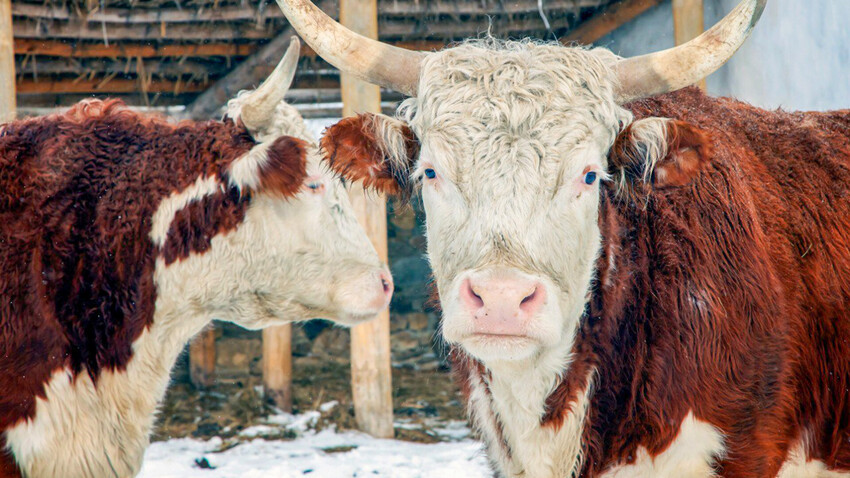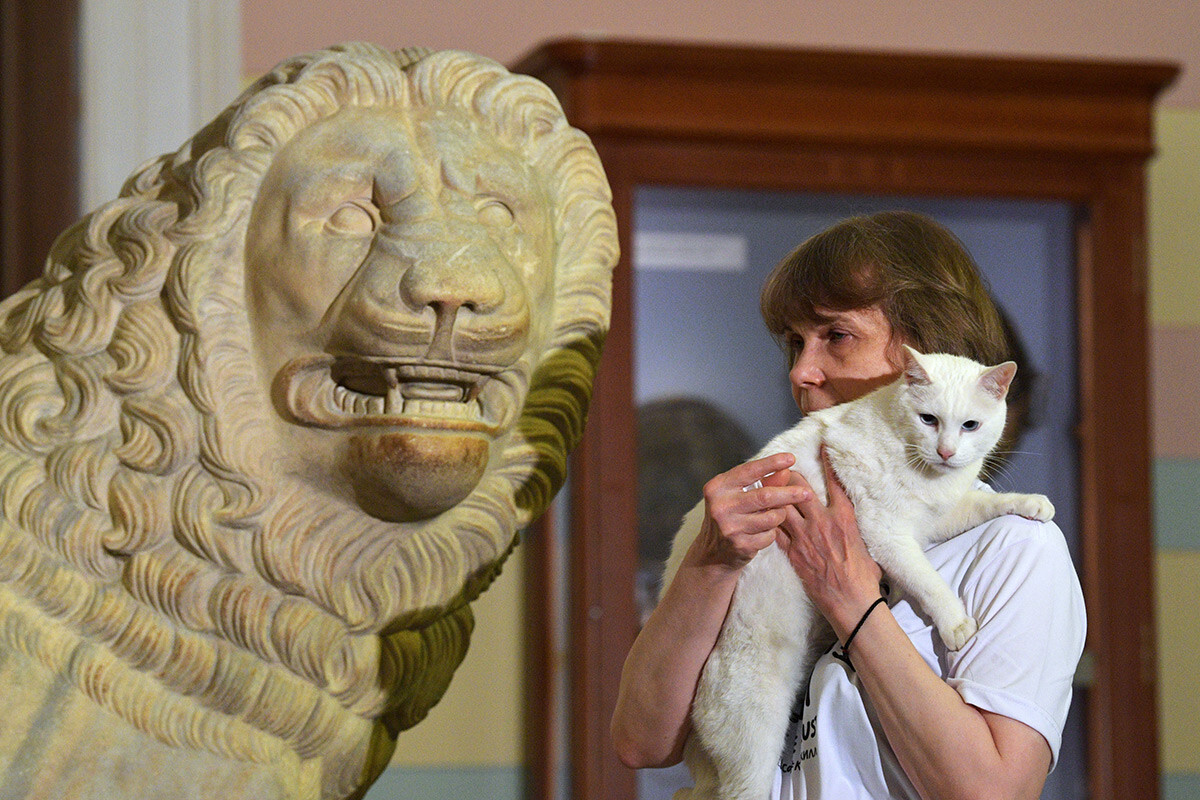

The most famous, of course, are the Hermitage cats. Initially, the tailed ones were originally brought to the Winter Palace during the time of Empress Elizabeth Petrovna to fight rodents. Under Catherine II, they were given the official status of ‘guardians of art galleries’. Today, at least 50 cats live in the basements of the Hermitage. They have official documents and the position of “specialists in cleaning museum basements from rats”, their own keeper and a veterinarian.
Cats live in many museums. Including the Rublev Museum of Old Russian Culture in Moscow – furry keeper ‘Bonya’ attentively watches visitors and willingly lets you pet her.
The Ostafyevo Museum-Reserve is home to a squirrel named ‘Gvidosha’. He lives in a treehouse and, during “working hours” he willingly poses for photos and accepts nuts from visitors. He also has his own Telegram channel, where he talks about the museum’s daily life and his relationship with the squirrel from Pushkin’s ‘The Tale of Tsar Saltan’.
A horse named ‘Laska’ from Gorki Leninskiye near Moscow will gladly keep horseback riding enthusiasts company.
And her colleague ‘Krona’ from Tsarskoye Selo in St. Petersburg loves to make bows.
‘Topa’, a raven at the Novgorod Museum-Reserve, meanwhile, is a real artist with his own army of fans. He skillfully plays “thimbles” and performs gymnastic tricks.
‘Grishka’ and ‘Mashka’ are working oxen at the Mikhail Sholokhov Museum-Reserve. They were named after the heroes in the epic novel ‘Quiet Flows the Don’. They are busy in the village of Veshenskaya, Rostov Region, doing important things – harrowing, plowing and not refusing a juicy apple as a reward.
Dear readers,
Our website and social media accounts are under threat of being restricted or banned, due to the current circumstances. So, to keep up with our latest content, simply do the following:
If using any of Russia Beyond's content, partly or in full, always provide an active hyperlink to the original material.
Subscribe
to our newsletter!
Get the week's best stories straight to your inbox